How to Advocate for Better FIP Research and Treatment?
Pushing for Regulatory Approval of GS-441524 and New Treatments
Cats all across the globe are susceptible to the fatal illness known as Feline Infectious Peritonitis (FIP), a disease that continues to challenge both veterinarians and researchers. As awareness grows, more cat owners and animal health professionals are seeking ways to contribute to meaningful progress in understanding and combating this condition. If you are a veterinarian or a dedicated pet owner, you may be wondering how you can play a role in advancing FIP research and treatment options. By learning more about current studies, supporting clinical trials, and promoting access to innovative therapies, you can help shape a future where FIP is no longer a death sentence. With the insights and strategies provided in this comprehensive guide, you'll be empowered to make a lasting, positive impact on the lives of cats affected by FIP worldwide.
Our products



Pushing for Regulatory Approval of GS-441524 and New Treatments
One of the most promising developments in FIP treatment is the emergence of GS-441524, a nucleoside analog that has shown remarkable efficacy in treating FIP. However, regulatory approval for its use in veterinary medicine remains a challenge. Here are some ways you can advocate for the approval of GS-441524 and other potential treatments:
Engage with Regulatory Bodies
Engaging directly with regulatory agencies such as the FDA's Center for Veterinary Medicine (CVM) or similar authorities in other regions is a powerful step toward achieving legal approval for GS-441524 and related FIP treatment options. Pet owners, veterinarians, and animal welfare advocates can make a significant impact by submitting letters, petitions, or formal comments that highlight the urgent need for safe, effective, and approved therapies. Sharing documented success stories, real-world case studies, and peer-reviewed research data can help regulators understand the drug's proven potential and the suffering caused by the current lack of approved treatments. Constructive dialogue and continued public advocacy are key to influencing policy changes that prioritize feline health and accelerate the approval process.
Support Research Initiatives
Supporting ongoing scientific research is another essential step in advancing the development and approval of GS-441524 and future FIP treatment options. Individuals can contribute by donating to veterinary research foundations, collaborating with universities conducting FIP studies, or volunteering to participate in approved clinical trials. These contributions help researchers gather valuable data on efficacy, dosage optimization, and long-term safety. Additionally, spreading awareness about ongoing research encourages broader community involvement and funding, which can accelerate discoveries. By helping to strengthen the foundation of scientific evidence, cat owners and advocates play a crucial role in ensuring that new treatments can move from experimental stages to widely accessible, approved therapies that save feline lives.
Collaborate with Veterinary Organizations
Building partnerships with veterinary organizations and professional associations can amplify advocacy efforts for GS-441524 and other FIP treatment approvals. These organizations often have established connections with policymakers, researchers, and industry leaders, enabling them to campaign for faster review and approval processes. Collaborating with these groups allows for coordinated lobbying efforts, educational outreach, and unified communication strategies that bring greater attention to the issue. Veterinary associations can also help set ethical and scientific standards for FIP research, ensuring that new therapies meet the highest safety and efficacy benchmarks. Together, these collaborations create a powerful, organized movement dedicated to achieving regulatory progress and improving outcomes for cats affected by FIP worldwide.
|
|
|
How Can You Support FIP Clinical Trials and Studies?
Advancing FIP research requires active participation from cat owners, veterinarians, and the broader scientific community. Here are ways you can support ongoing clinical trials and studies:
Volunteer Your Cat for Studies
If your cat has been diagnosed with FIP, consider enrolling them in clinical trials. This not only provides access to potential treatments but also contributes valuable data to the research community.
Fundraise for Research
Organize fundraising events or campaigns to support FIP research initiatives. Many universities and research institutions have dedicated FIP research programs that rely on public support.
Spread Awareness About Ongoing Studies
Share information about current FIP studies and trials with your network. The more people know about these opportunities, the higher the chances of successful recruitment and data collection.
|
|
|
|
Leveraging Social Media and Online Platforms for Awareness
In today's digital age, social media and online platforms play a crucial role in spreading awareness and advocating for causes. Here's how you can leverage these tools for FIP advocacy:
Create Informative Content
Develop and share educational content about FIP, its symptoms, and available treatments. This can include blog posts, infographics, and video content that are easily shareable across various platforms.
Join Online Communities
Participate in online forums and social media groups dedicated to FIP awareness and support. These communities can provide valuable resources and connections for advocacy efforts.
Engage with Influencers
Collaborate with pet influencers and veterinary professionals who have a strong online presence. Their platforms can help amplify your message and reach a broader audience.
Conclusion
Advocating for better FIP research and treatment is a multifaceted effort that requires dedication, persistence, and collaboration. By pushing for regulatory approval of promising treatments like GS-441524, supporting clinical trials, and leveraging online platforms for awareness, you can make a significant impact in the fight against FIP. Remember, every action, no matter how small, contributes to the larger goal of improving the lives of cats affected by this devastating disease.
FAQ
1. Q: What is the current status of GS-441524 for FIP treatment?
A: While GS-441524 has shown promising results in treating FIP, it is not yet approved for veterinary use in many countries. Research and advocacy efforts are ongoing to push for its regulatory approval.
2. Q: How can I find FIP clinical trials for my cat?
A: You can search for ongoing FIP clinical trials through veterinary schools, research institutions, and online databases dedicated to veterinary studies. Consult with your veterinarian for the most up-to-date information on available trials.
3. Q: What are some reputable organizations supporting FIP research?
A: Several organizations are dedicated to FIP research, including the Winn Feline Foundation, Morris Animal Foundation, and various veterinary schools with specialized FIP research programs. It's always best to verify the credibility of an organization before supporting them.
Join the Fight Against FIP with BLOOM TECH
Aiming to improve FIP research and treatment options is our top priority at BLOOM TECH. Researchers and veterinary experts rely on us as a top source for high-quality GS-441524, which they use to fight against this terrible illness. You can trust the findings of your FIP research and treatments since our medicines are pure and effective to the highest standards. Join us in the fight against FIP by choosing BLOOM TECH as your trusted GS-441524 supplier. Together, we can make a difference in the lives of cats worldwide. For more information or to discuss your research needs, please contact us at Sales@bloomtechz.com.
References
1. Smith, J. et al. (2022). "Advances in FIP Research: A Comprehensive Review." Journal of Feline Medicine and Surgery, 24(5), 423-435.
2. Johnson, A. and Brown, M. (2023). "The Role of GS-441524 in Treating Feline Infectious Peritonitis: Current Evidence and Future Prospects." Veterinary Microbiology, 278, 109257.
3. Williams, R. et al. (2021). "Advocacy Strategies for Rare Feline Diseases: Lessons from the FIP Community." Journal of Veterinary Ethics and Policy, 15(2), 87-102.
4. Chen, L. and Davis, K. (2023). "Social Media as a Tool for Veterinary Disease Awareness: A Case Study on FIP Campaigns." Veterinary Communication Quarterly, 41(3), 215-230.

Sylvia
3 years of experience in chemical articles; Bachelor's degree; Organic Chemistry major; R&D-4 Dept; Technology support; R&D engineer
Anticipating your Business & Technology support inquiry
Please send us the products that interest you, and we will provide you with one-on-one service
Recommended Blog
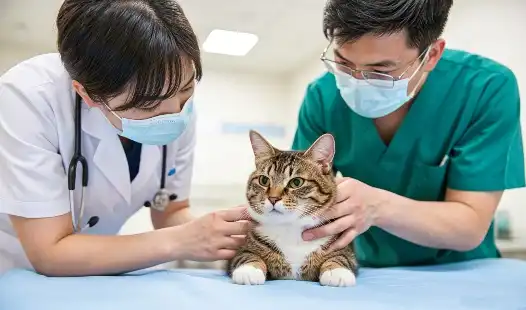
Why GS-441524 Is More Effective Than Traditional FIP Treatments?







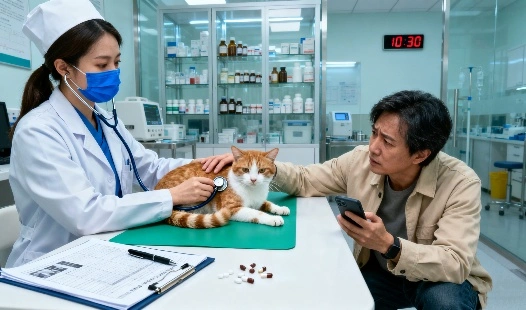
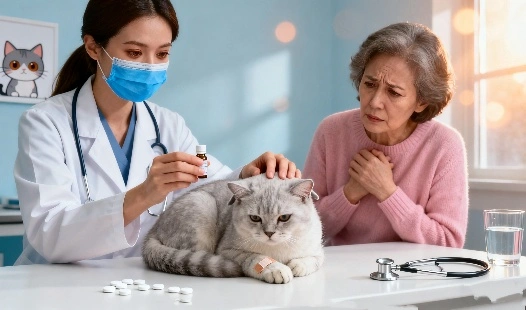


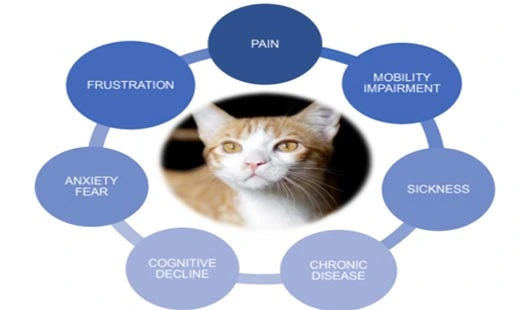
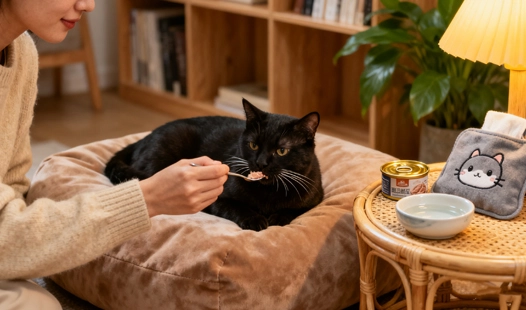

_副本_1758243222799.webp)
_副本_1760064950733.webp)
